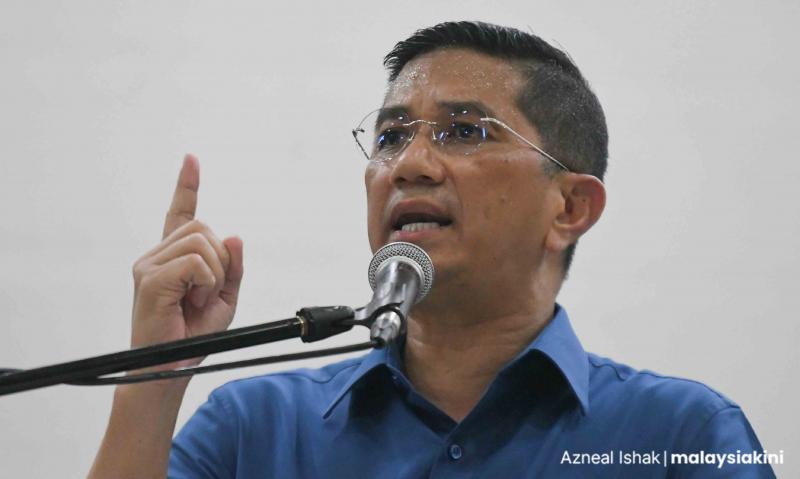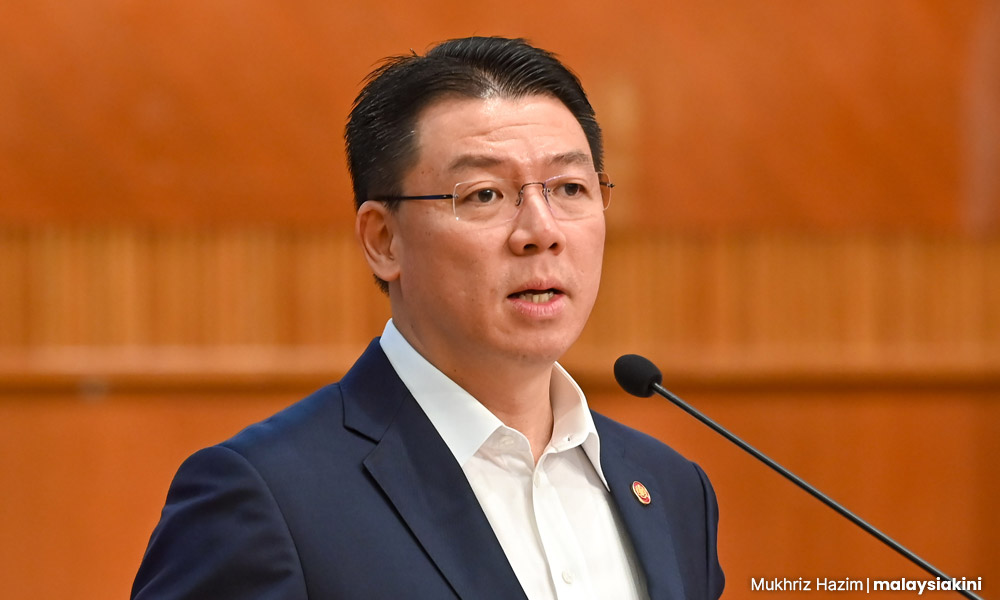
Azmin accuses DAP of playing 'dirty money politics' in KKB
Published: Apr 18, 2024 6:02 PM
Selangor Perikatan Nasional chief Azmin Ali has accused DAP of playing “dirty money politics” in Kuala Kubu Baharu (KKB) amid the upcoming by-election on May 11.
This came after Housing and Local Government Minister Nga Kor Ming announced an allocation of RM5.21 million for Hulu Selangor residents, including projects at KKB.
"Pathetic. DAP is practising dirty money politics to secure votes,” Azmin (above) told Malaysiakini.
The Bersatu leader then urged KKB voters to punish Pakatan Harapan at the ballot box in the state seat polls.
Earlier today, Bernama reported that Nga said RM5.21 million will be given to upgrade public infrastructure facilities under the supervision of the Hulu Selangor Municipal Council (MPHS) and the Chinese New Village Project.
The minister said the allocation included 14 projects worth RM4.82 million to be implemented by the local council and the Village Community Management Council (MPKK).

Housing and Local Government Minister Nga Kor Ming
"Of that amount, RM4.16 million is channelled through MPHS, while RM664,000 is allocated to MPKK in Hulu Selangor," Nga said at the Sentuhan Kasih KPKT programme.
‘Hypocrisy, not reformasi’
Commenting on the matter, Bersatu Youth leader Wan Ahmad Fayhsal Wan Ahmad Kamal called Nga’s move hypocritical.
“This behaviour of handing out election goodies was the same issue DAP had opposed during BN’s administration.
“What kind of reform is this? This is actually hypocrisy, not reform,” the Machang MP added.
"Of that amount, RM4.16 million is channelled through MPHS, while RM664,000 is allocated to MPKK in Hulu Selangor," Nga said at the Sentuhan Kasih KPKT programme.
‘Hypocrisy, not reformasi’
Commenting on the matter, Bersatu Youth leader Wan Ahmad Fayhsal Wan Ahmad Kamal called Nga’s move hypocritical.
“This behaviour of handing out election goodies was the same issue DAP had opposed during BN’s administration.
“What kind of reform is this? This is actually hypocrisy, not reform,” the Machang MP added.

Bersatu Youth leader Wan Ahmad Fayhsal Wan Ahmad Kamal
The KKB seat fell vacant following the death of its incumbent Lee Kee Hiong on March 21.
The 58-year-old had been the KKB assemblyperson since 2013 and retained the seat for DAP under the Pakatan Harapan banner in the state election last year.
The state constituency comprises 46 percent Malay voters, followed by Chinese (31 percent), Indians (18 percent), and others (five percent).
The KKB seat fell vacant following the death of its incumbent Lee Kee Hiong on March 21.
The 58-year-old had been the KKB assemblyperson since 2013 and retained the seat for DAP under the Pakatan Harapan banner in the state election last year.
The state constituency comprises 46 percent Malay voters, followed by Chinese (31 percent), Indians (18 percent), and others (five percent).
No comments:
Post a Comment